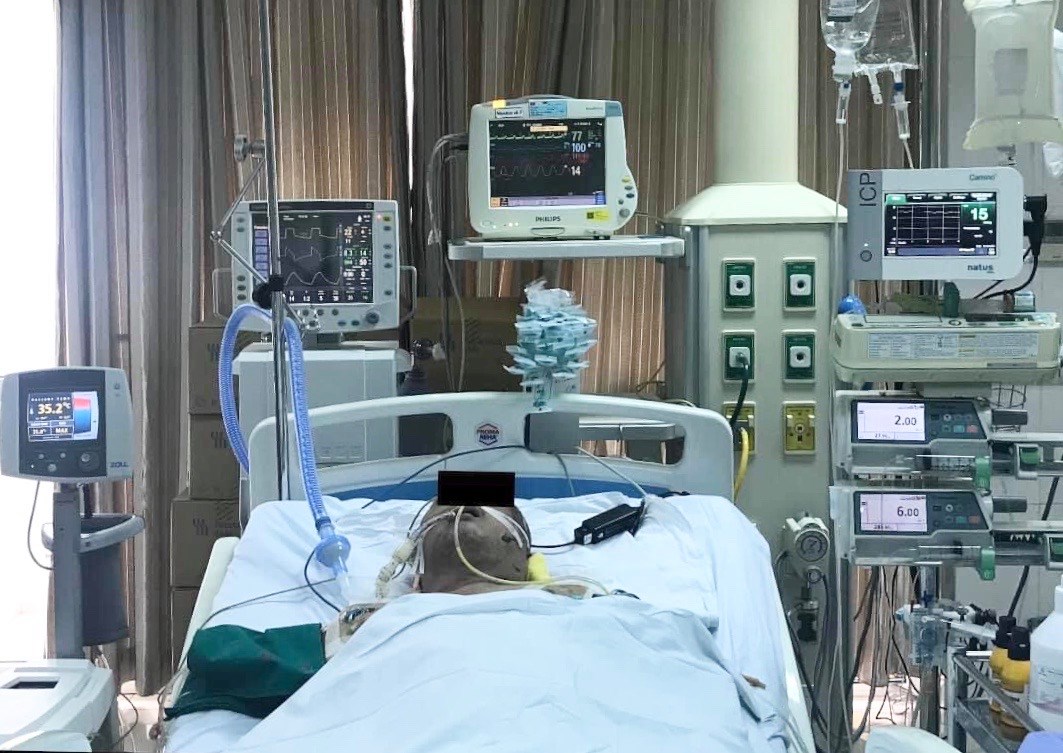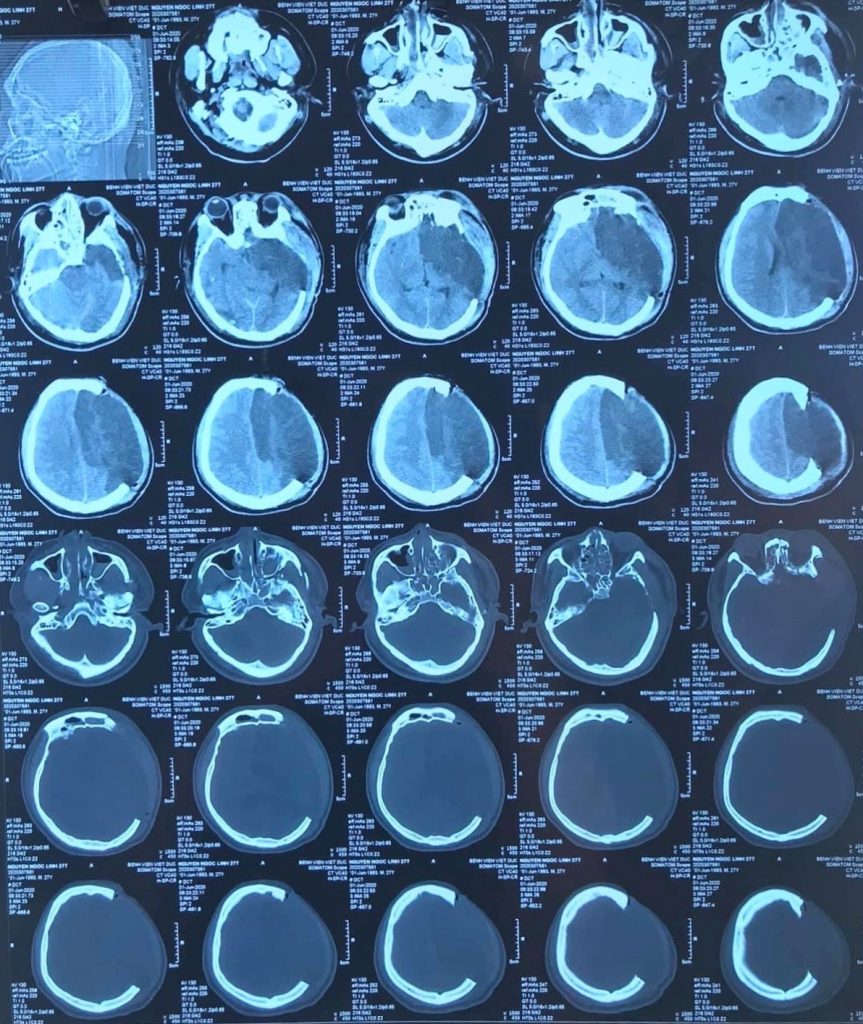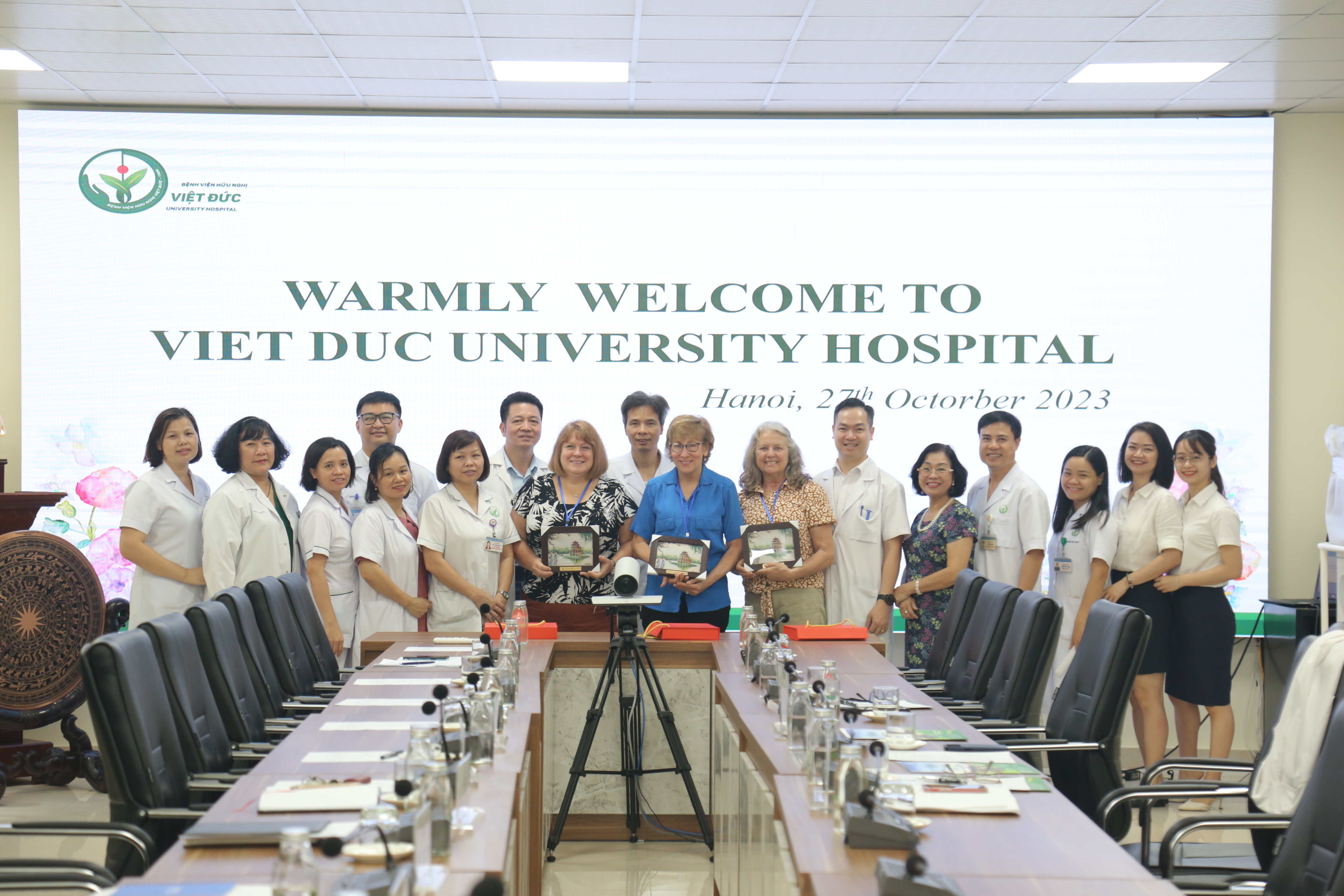Saving a patient fell from 7m high scaffolding with hypothermia method
17/08/2020 14:54

Male patient – N.N.L, 27 years old, hometown in Kien Xuong, Thai Binh, fell from 7m high scaffolding, was transferred to Viet Duc University Hospital on 3rd June, 2020 in a unconscious state due to severe brain trauma.
On admission, patient’s vital signs were very low. Glasgow: 4 points, left pupils dilate 4mm, right pupils dilate 2mm, respiratory assistance by Ambu bag.
Patient was severely brain injured: Hemispherical subdural hematoma, left hemisphere infarction due to carotid stenosis in the left. Thoracic trauma: Pneumonia on both sides, mediastinal gas overflow. Spinal trauma: fracture of spine process at C5-C6.
Patients were transferred straight to the operating room for removing hematoma, decompressive craniectomy, meninges was purple during the surgery, weak beating, much cerebral edema.
After surgery, he was resuscitated to actively receive mechanical ventilation. The second day after non-progressing sensory surgery, fever 40.6. Intracranial pressure (ICP) increases 42-55mmHg.
Patient was assigned with hypothermia order set: Target temperature (Target Temp): 35.0, speed: MAX. When the temperature drops to 38.8, ICP intracranial pressure is 27, when the temperature is close to 35.0, ICP is 16mmHg. Patient maintained this temperature and ICP for 5 days.

Skull CT scan film after decompressive craniectomy. Picture: BVCC
According to Dr. Luu Quang Thuy, MD, PhD– Vice director of Anesthesia and Surgical Intensive Care Center, Viet Duc University Hospital: The last 3 methods used for ICP increasing treatment are anesthetize with barbiturate, decompressive craniectomy or hypothermia order set.
The patient was sedated and decompressive craniectomy was also unable to reduce ICP, eventually the hypothermia method was applied and saved patient’s life.
According to Dr. Thuy, in 2016 at the conference on hypothermia in Philadelphia – USA, the authors talked a lot about this issue, so far this technique has been applied at Anesthesia and Surgical Intensive Care Center, Viet Duc University Hospital which offers more efficient in treatments.
After 29 days staying in intensive care room, Mr.N.N.L’s life was saved, improved perception: Opened eyes naturally, followed orders slowly, then transferred to neurosurgery department for further treatments.
Two days later, the patient is discharged and set a date for skull re-implanted.
This success has once again marked the expertise of doctors at Viet Duc University Hospital on the journey to bring life to patients and belief in miraculous revival.











